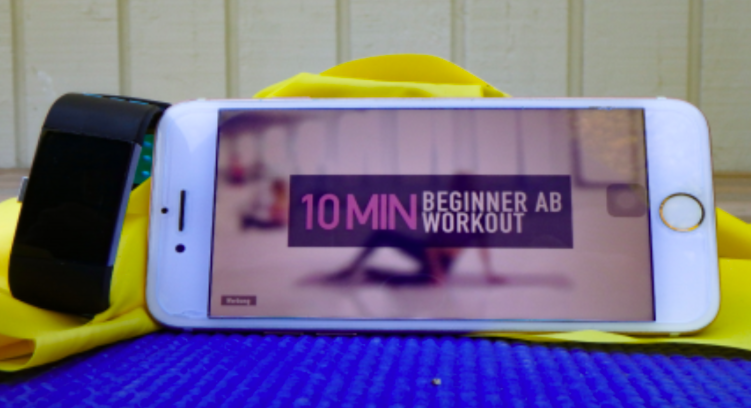At-Home Workouts: Healthy or Dangerous?
June 17, 2020
Quarantine has left everyone with an abundance of free time, which to many has appeared a golden opportunity for self improvement. With everything closed, at home workout trends have risen in popularity. Workout programs such as popular fitness influencer Chloe Ting’s “2 Week Shred Challenge” have blown up, and their influence can be seen all over social media. A rise in workout trends means a rise in people sharing their fitness goals, producing relatable workout content, and motivational posts, all of which can be very overwhelming. “I think we have all felt the pressure from social media lately,” says sophomore Madison Dircks. Staying active during this time is important, but workout trends can quickly turn unhealthy, by causing body image issues and, in extreme cases, eating disorders.
Seeing motivational pictures and body transformation videos all over social media does more harm than good to one’s mental health. A study led by Dr. Ivanka Prichard of the Shape Research Centre at Flinders University in Australia showed that when young women viewed these posts it lowered their self esteem, and worsened their self-image. These fitness posts don’t even motivate people to work harder when exercising. The study went on to show how women who saw these posts and thought they pushed harder than usual when they worked out, did not actually make better times on a treadmill than those who did not view these posts. The study stated, “Results demonstrated that exposure to fitspiration images led to significantly higher negative mood and body dissatisfaction.” Fitness posts on social media are not encouraging, but instead make people feel bad about themselves.
When selecting a workout program, don’t just follow the trends. Fitness is not one size fits all. Different online workout programs may be more difficult for some people than others. According to Emily Slager, the program director of Walden eating disorders clinic, “In many cases, proponents of a trend will connect compliance with the regimen to improved physical and emotional health, increased confidence and self-esteem, and improved body image.” These promises and goals are not as attainable as they are made to seem. When these unrealistic goals are not reached, it can lead to anxiety, depression, and obsession. During quarantine especially it can become even easier to become obsessed with working out due to all of the added free time. However, an exercise addiction is not healthy. When the thought of missing a workout is particularly dismaying, it’s time to take a step back.
While trying out a new routine can be fun, trendy workout challenges and programs can be too intense, and following a rigorous schedule may not be right for everyone. There’s no need to completely change up one’s exercise routine just because of the situation at hand, but when considering trying something new out, don’t do it just because of the pressure from social media.






